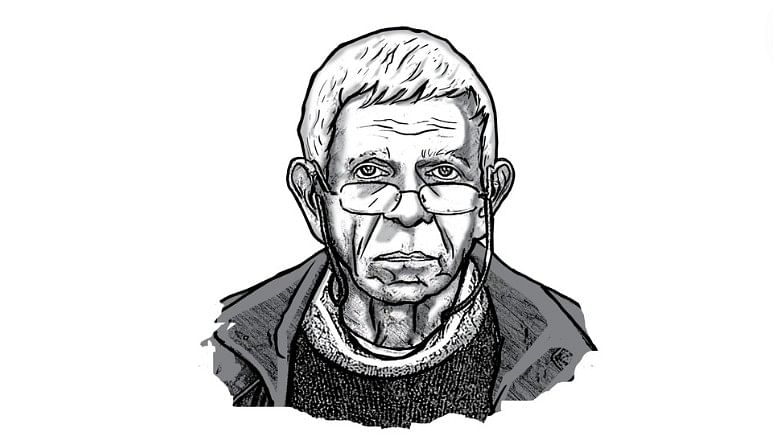
Roger Marshall is a computer scientist, a newly minted Luddite and a cynic
DH Illustration
In a remarkable April 29, 1938, address to the US Congress on curbing monopolies, President Franklin Delano Roosevelt had this to say, “The first truth is that the liberty of a democracy is not safe if the people tolerate the growth of private power to a point where it becomes stronger than their democratic State itself. That, in its essence, is fascism — ownership of government by an individual, by a group, or by any other controlling private power.” He also noted that wider distribution of shares of huge corporations among the public was no guarantee that the power of these corporations could be contained since the sizes of their individual holdings were too small to influence company policies regarding mergers, acquisitions and consolidations.
Roosevelt was extremely worried about the inter-linked business policies of just a few large companies masquerading as independent units and managing the economic life of the country. Roosevelt’s remarks were made long before electronic computers were invented and that the few companies in control of the US economy were in the transportation (railroads and automobiles), extraction (oil, iron and copper), agriculture, banking and real estate industries.
So, what exactly has changed on the corporate front after nearly one hundred years? Frankly, not much. Big Tech has managed to monopolise every aspect of day-to-day life, be it in commerce, communication, entertainment, or something else. The ‘robber barons’ of the late 19th and early 20th centuries (Carnegie, J P Morgan, Rockefeller, Vanderbilt, etc.) have given way to their present-day counterparts (Bezos, Gates, Musk, Zuckerberg, etc). Company workplaces in the 20th century were beset by racism, sexism, homophobia and State-sanctioned union-busting tactics -- all of which are still the norm in Big Tech, especially at Tesla and Amazon.
Eminent historians, writers and political scientists have come up with a set of characteristics, some of which are self-contradictory, that describe fascism. These characteristics include the following: hero worship, avid militarism, denigration of entire cultures, societies and peoples, sowing dissent (fake news and fake videos), anti-intellectualism (lack of critical thinking skills), an impoverished language devoid of syntax (think of acronyms and text messages), suppression of workers and worker rights, elitism (us versus them), a controlled mass media, and the co-opting of religious and political leaders.
There is no denying that the US has a global monopoly on software, a monopoly that is rarely recognised as such but never challenged until recently by China, especially in the field of AI, and that this monopoly is enforced through rigid trans-national intellectual property laws codified in ‘free’ trade agreements, violations of which could result in the imposition of sanctions against offending countries. It should come as no surprise that 89% of all web searches are done using Google, almost 80% of all office software across the globe is supplied by Microsoft, and Meta’s WhatsApp is the most widely used instant messaging and voice-over-IP service in the global south.
China, on the other hand, enjoys a monopoly on manufacturing – a monopoly ceded to it by companies in western nations eager to maximize profits and minimize production costs by taking advantage of China’s cheap non-unionized workforce. Big Tech has had a huge role in facilitating this transition.
Big Tech is an ardent advocate of free speech and human rights, only that it does not apply to their workplace, wherever that may be. Pro-Palestinian supporters may wish to take note. Big Tech is strongly opposed to surveillance when it happens in China but not in the US. Tik-Tok is bad for the US but Meta is not? Big Tech is against military-civilian dual-use technologies in China but has no issues with bidding on billion-dollar Pentagon contracts. From Big Tech’s perspective, it is acceptable for law enforcement agencies to use its software for surveillance of Muslims and Blacks in the US but it is definitely not okay for China to keep tabs on the minority Uighur population.
Over the years, with their deep pocketbooks, Microsoft, Google and Apple have fought, tooth and nail, efforts by government regulators in the EU and US to curb their monopolistic practices.
In his essay “Ur-Fascism”, which appeared in the June 22, 1995 edition of the New York Review of Books, author Umberto Eco predicted that “There is in our future a TV or Internet populism, in which the emotional response of a selected group of citizens can be presented and accepted as the Voice of the People.”
Big Tech’s motto: L’etat, c’est moi. I’m the State.